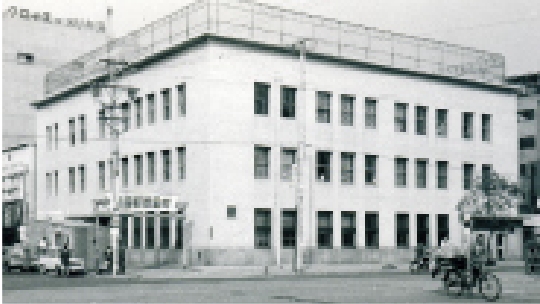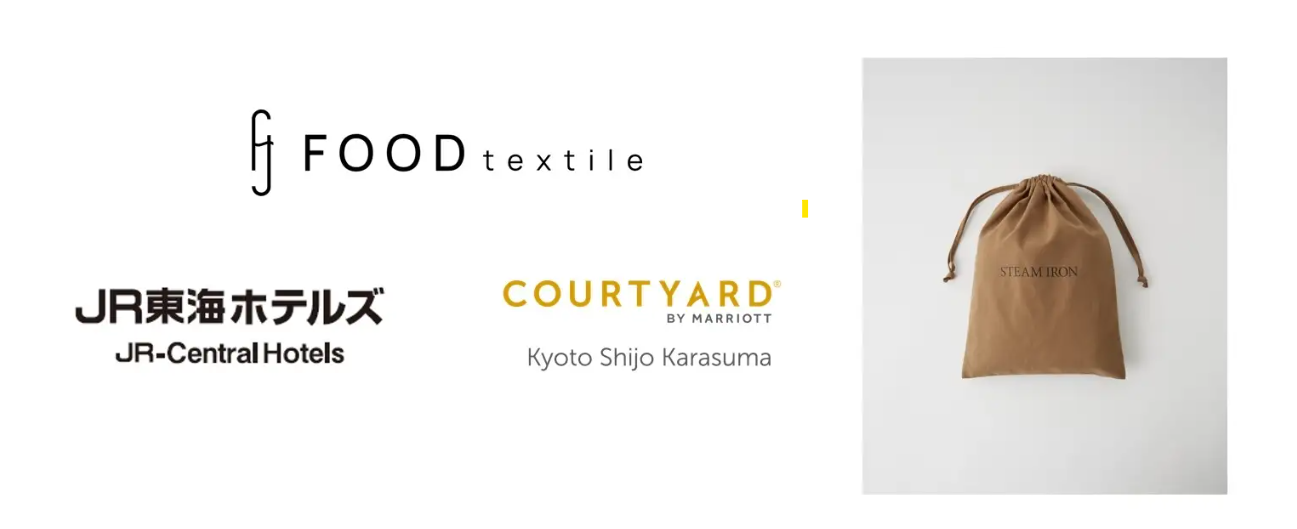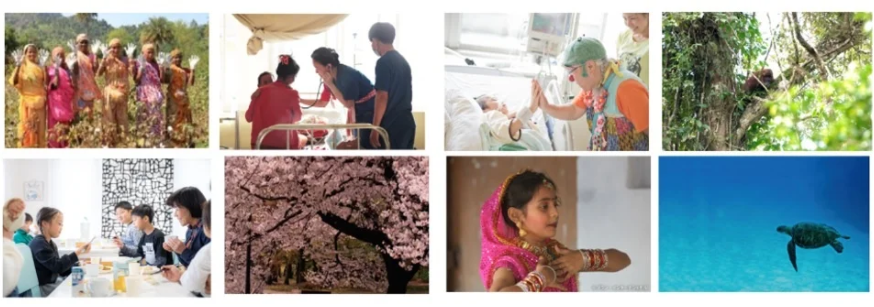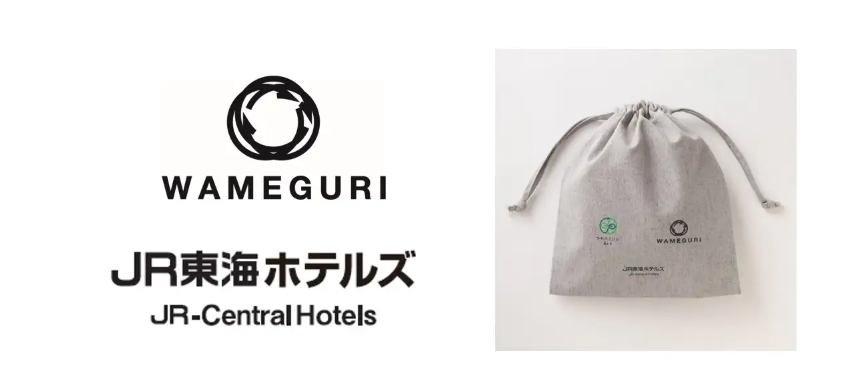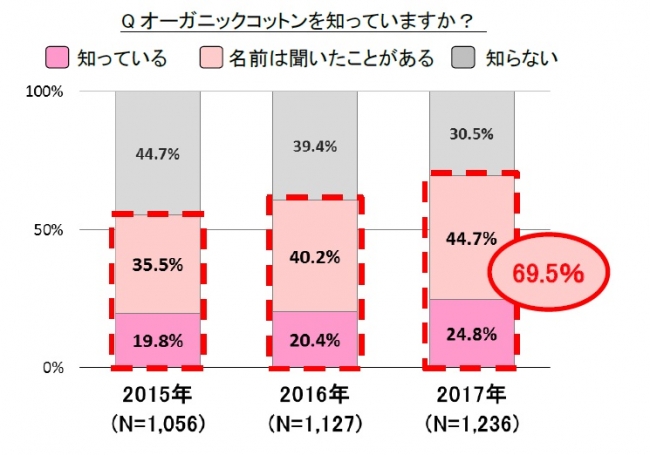
In the same survey conducted in 2015, awareness of organic cotton was 55.3% and 60.6% in 2016. This year, it gradually increased to 69.5%, an increase of 14.2 points compared to 2015, and it can be said that organic cotton has become widely recognized by the public.
<Survey Topics>
[1] Approximately 60% of respondents confirm the origin and country of origin of organic cotton products.
[2] About 10% (12.3%) of people have a correct understanding of organic cotton.
[3] Less than 30% have purchased organic cotton products
[4] Organic products are competitive in price! ? The points to choose organic clothes are price, quality and design.
[1]Check the origin and country of origin of organic cotton productsabout 6 peopleSplit
When asked if they would like to confirm the country of origin of the materials when purchasing clothing, 26.0% of the respondents answered that they have already done so and would like to continue doing so, while 26.0% of respondents answered that they had not done so before. 29.4% of the respondents answered that they would like to work on it in the future. In addition, when asked if they would like to confirm the production area and country, 33.4% answered that they have already done so and would like to do so in the future. ” was 29.0% of the total, and about 60% of the respondents confirmed the country of production and the origin of the material.
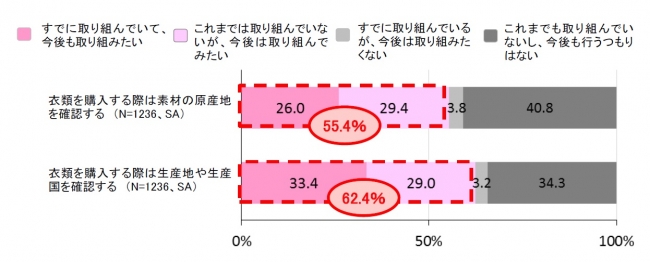
[2] About 10%(12.3%)of people have a correct understanding of organic cotton.

First, when asked if they understood that "organic cotton is no different from ordinary cotton at the raw material stage," 12.3% of the respondents answered that they "understood." 27.0% answered that they "somewhat understand" and 60.7% answered "no"*1.
In addition, when asked if they understood that "the purpose is to improve environmental pollution and preserve the health of producers", 12.2% of the respondents answered "I do" *2, and "3 years 10.6 people answered "I understand" when asked if they understood "the term refers to cotton grown without the use of any pesticides or chemical fertilizers in fields that do not use chemical agents". %*3.
*1, *2, *3 “I know the name of organic cotton and understand what it is” or “I have heard the name of organic cotton, but I do not know what it is” Question for those who answered
[3] organic cottonproductofAbout 30% or less of those who have purchased
I understand that organic cotton has been widely recognized by the public, but how many people actually buy it? When we asked people who know or have heard of organic cotton about their experience of purchasing organic cotton products, 29.9% of them had purchased them, which is less than 30%.
Also, when asked if they had an image of which is more expensive when comparing the prices of organic cotton and ordinary cotton, 82.3% of the respondents answered that organic cotton is more expensive. It seems that the big factor that does not lead to purchase is the image of "high price".
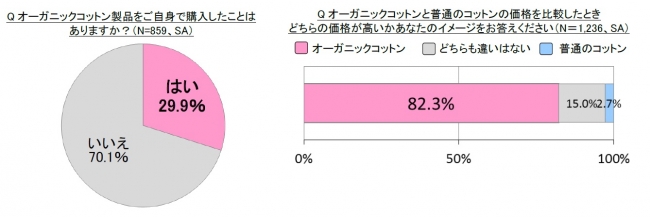
[4] Organic products are competitive prices! ?
The points to choose organic clothes are price, quality and design.
When asked about the points to choose when purchasing organic products such as clothes and food and beverages, “price” was ranked first for both (clothes: 41.7%, food and beverages: 44.9%). Looking at the results for the 2nd place and below, the points for choosing organic clothes are 2nd place “Quality” (35.8%), 3rd place “Design” (26.7%), and 4th place “Brand” (21.1%). rice field. On the other hand, the points for choosing organic food and beverages are 2nd place “origin” (39.9%), 3rd place “safety and security” (36.2%), and 4th place “quality” (35.1%). A difference appeared. Since food is put into the mouth, it can be inferred that many people check the place of origin, safety and security, and ingredients before making a choice. It may become a point to select when purchasing by confirming the name, production, and manufacturer.
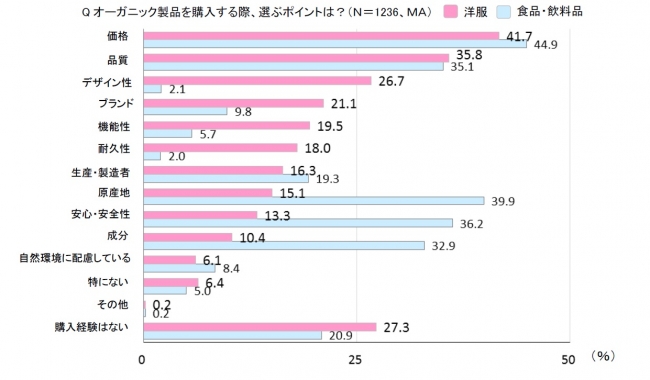

[Survey overview]
Survey period: August 4th to August 6th, 2017
Survey method: Internet / Survey target: 1,236 people nationwide
* Teens are 15 to 19 years old
■ In response to this survey
As awareness of organic grows, we recognize that it is our mission to correctly communicate and disseminate information about organic cotton.
Interest in organic foods has gradually increased since a major retail chain opened Japan's first organic supermarket "Bio c' Bon" in 2016.
Also, in the organic cotton market, we are seeing a lot of relatively inexpensive organic cotton. Furthermore, organic cotton has triggered a new movement to solve the environmental and social problems faced by the cotton industry. For example, "BCI (Better Cotton Initiative)" and "Fair Trade Cotton" refer to cotton that meets sustainable production standards according to regions and individual circumstances. It is thought that awareness of organic cotton is increasing as awareness of the environment rises in this way.
As the survey shows, when it comes to food, there are many people who take into consideration the place of origin, safety and security, ingredients, etc., and adopt organic products, but the understanding of organic cotton, which is the same agricultural product, is still developing. I believe that TOYOSHIMA, which has its origins in cotton, should contribute to the development of the organic cotton market in Japan, which has room for growth.
In the future, Orgabits plans to develop and sell (planned) an original kit that will allow you to grow cotton at home, which is said to be 0% self-sufficient in Japan, and to take a new approach so that you can feel organic cotton close to you. As stated in the Orgabits philosophy, we will continue to contribute to the health of cotton producers and the global environment by supplying products that are easy for consumers to afford.
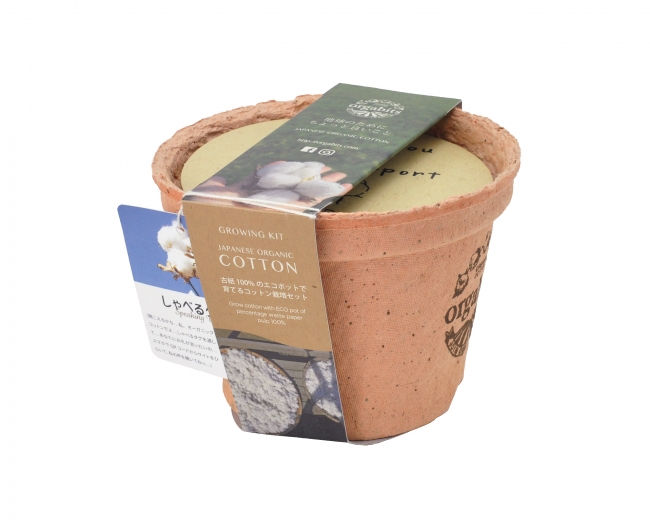
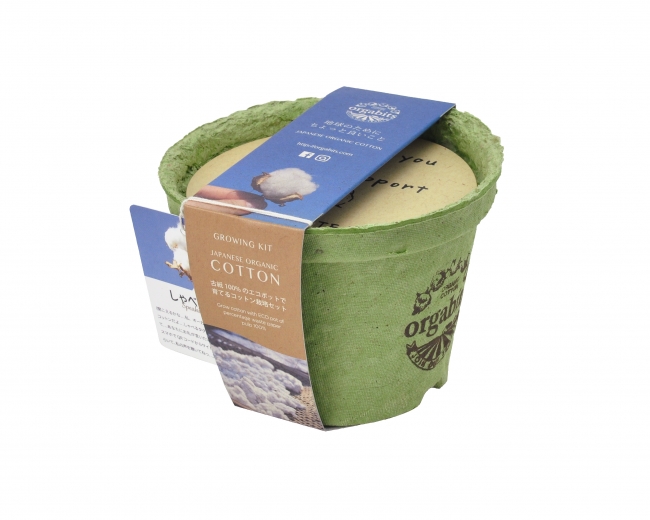
Organic cotton home cultivation kit (planned)
What is the Orgabits Project?
The Orgabits Project is an organic cotton promotion project developed by TOYOSHIMA Co., Ltd., in which the largest number of apparel brands in Japan participate. Currently, 90 brands are participating in the “reversal idea” of delivering 100% organic cotton products to 100 times more people, and 630,000 items are produced annually.
The activity has expanded to support farmers in the country of origin and NPO corporations, and the circle is expanding as a social contribution activity that allows you to participate in fashion through one piece of clothing.
■What is true organic cotton?
About 15% of the pesticides and 7% of the pesticides used in the world are used on cotton produced by conventional cultivation methods (source: Textile Exchange), which leads to soil contamination, environmental problems, etc. It contains various problems.
On the other hand, organic cotton refers to cotton that has been organically grown on farmland that has not used pesticides or chemical fertilizers for at least three years. As the demand for this organic cotton increases, it is expected that cotton cultivation using conventional cultivation methods will decrease and the above problems will be improved.
[Orgabits official website] http://orgabits.com/
[Orgabits Facebook page] https://www.facebook.com/orgabits


